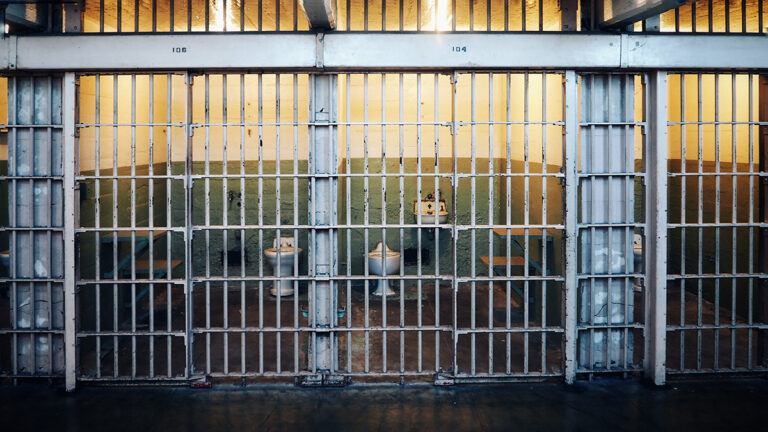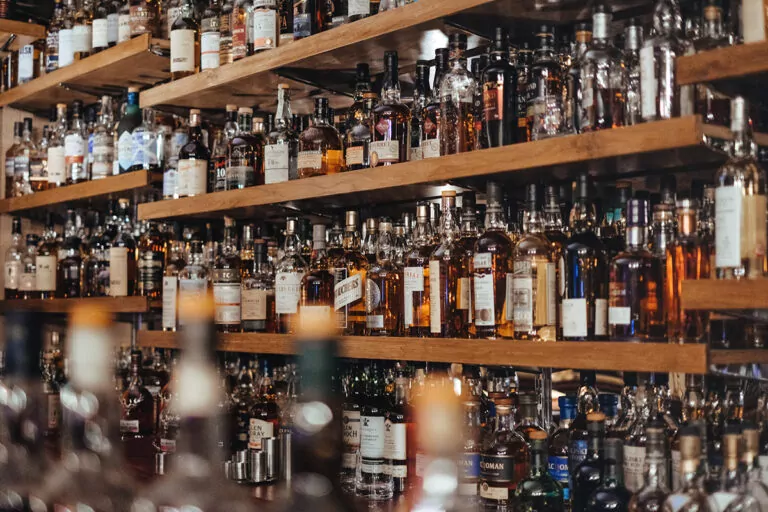The relationship between addiction and criminal justice has long been known and deeply intertwined, since a substantial portion of the crimes committed in contemporary societies can be directly or indirectly attributed to substance addiction. In the United States alone, it is estimated that about 65% of the prison population struggles with substance addiction, with more than half of them being clinically addicted (Fazel et al., 2006). In recent years, the criminal justice system’s approach towards addiction has been heavily debated, as the negative consequences of incarceration for addicted individuals have become increasingly evident.
Traditional criminal justice measures, such as imprisonment, can inflict serious harm on those struggling with addiction, as these measures often fail to address the underlying causes of their criminal behavior. Understanding the impact of incarceration on recovery is crucial in order to develop more effective and humane responses to addiction, as well as to reduce the revolving door effect of addicted individuals in and out of prison (Chandler et al., 2009).
The Shortcomings of Incarceration for Addiction Treatment
One of the main issues with the current intersection of addiction and criminal justice is that incarceration often hinders, rather than promotes, recovery for addicted individuals. Prisons are designed to punish and incapacitate offenders, rather than provide tailored treatment and rehabilitation for substance addiction. This means that many addicted prisoners fail to receive the necessary assistance and support to overcome their addiction while serving their sentence, which significantly increases their likelihood of committing subsequent crimes upon release (Simpson et. al, 2011).
The lack of specialized addiction treatment in prisons is particularly concerning given the high rates of substance addiction amongst offenders. According to the Bureau of Justice Statistics, 58% of state prisoners and 63% of sentenced jail inmates met the criteria for drug dependence or abuse, while 39% of federal prisoners reported drug use in the month before their offense (Bronson et al., 2017). Moreover, incarcerated individuals with untreated addiction are at an increased risk of experiencing various health problems, as well as engaging in risky behaviors such as sharing contaminated needles or having unprotected sex, which can lead to the transmission of infectious diseases like HIV, hepatitis C, and other sexually transmitted infections (Nellis, 2016).
Alternatives to Incarceration for Addiction Treatment
In light of the shortcomings of incarceration as a means to address addiction, various alternative approaches have emerged in recent years, with a growing focus on evidence-based treatments and interventions. Two main alternatives to incarceration for addiction treatment include drug courts and community-based treatment programs.
Drug courts, established as a response to the growing number of drug-related cases in the criminal justice system, are specialized court programs that aim to provide support and rehabilitation for nonviolent drug offenders instead of imprisonment. Drug courts have been found to be effective in reducing recidivism, with participants being less likely to reoffend than those who went through traditional court processes (Mitchell et al., 2012). Additionally, drug courts have been shown to save on criminal justice costs, as the cost of treatment and supervision are generally lower than that of incarceration.
Community-based treatment programs, on the other hand, are designed to provide a range of services to assist addicts in overcoming their addiction outside of the prison setting. Such services typically include case management, individual and group counseling, medication-assisted treatment, and vocational and educational services. Evidence suggests that community-based programs can be effective in reducing drug use, criminal behavior, and associated risk factors (Chandler et al., 2009). Moreover, these programs tend to be more cost-effective than imprisonment, by addressing the underlying causes of addiction and reducing the likelihood of recidivism.
Conclusion
The intersection of addiction and criminal justice has profound implications for not only the individuals struggling with addiction but also society as a whole. Incarcerating addicted individuals not only fails to address the root cause of their criminal behavior but can also hinder the recovery process and even exacerbate their addiction. As such, it is crucial to explore and implement more effective and humane alternatives to incarceration for addiction treatment, in order to break the cycle of addiction and crime, and ultimately improve the overall health and wellbeing of addicted individuals.
Do you have a loved one struggling with addiction?
We know how hard that can be. Give us a call to find out what options you have.
References
Bronson, J., Stroop, J., Zimmer, S., & Berzofsky, M. (2017). Drug Use, Dependence, and Abuse Among State Prisoners and Jail Inmates, 2007-2009. Bureau of Justice Statistics. U.S. Department of Justice.
Chandler, R. K., Fletcher, B. W., & Volkow, N. D. (2009). Treating drug abuse and addiction in the criminal justice system: improving public health and safety. JAMA, 301(2), 183-190.
Fazel, S., Bains, P., & Doll, H. (2006). Substance abuse and dependence in prisoners: a systematic review. Addiction, 101(2), 181-191.
Mitchell, O., Wilson, D. B., Eggers, A., & MacKenzie, D. L. (2012). Assessing the effectiveness of drug courts on recidivism: a meta-analytic review of traditional and non-traditional drug courts. Journal of Criminal Justice, 40(1), 60-71.
Nellis, A. (2016). The Color of Justice: Racial and Ethnic Disparity in State Prisons. The Sentencing Project.
Simpson, D. D., Joe, G. W., & Brown, B. S. (2011). Treatment retention and follow-up outcomes in the Drug Abuse Treatment Outcome Study (DATOS). Psychology of Addictive Behaviors, 11(4), 294.




